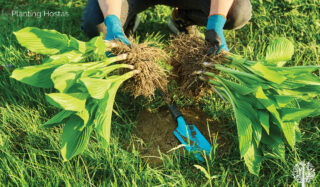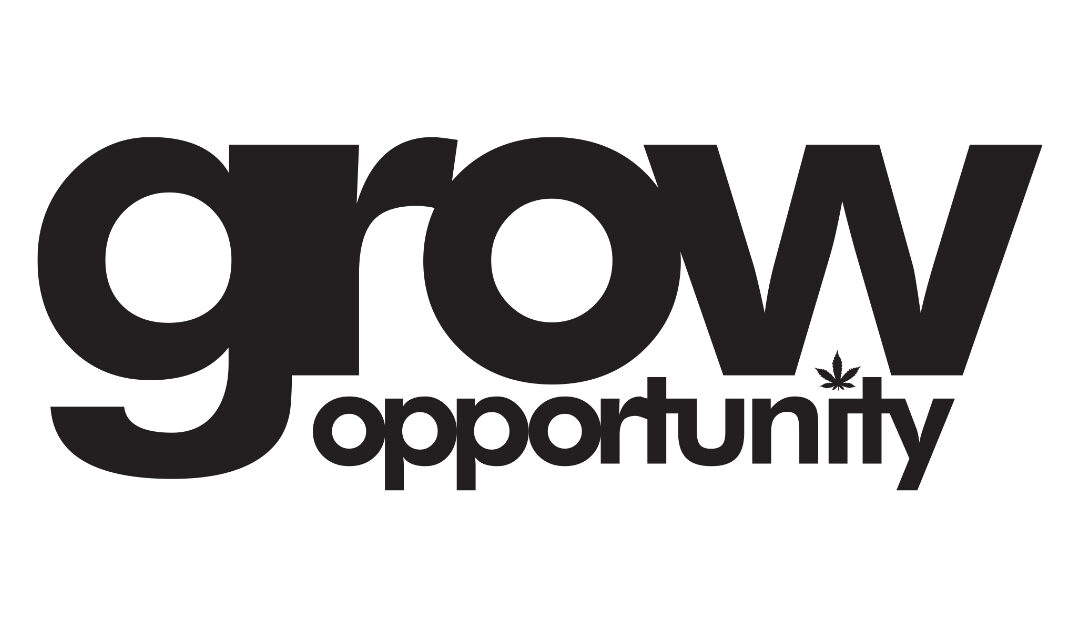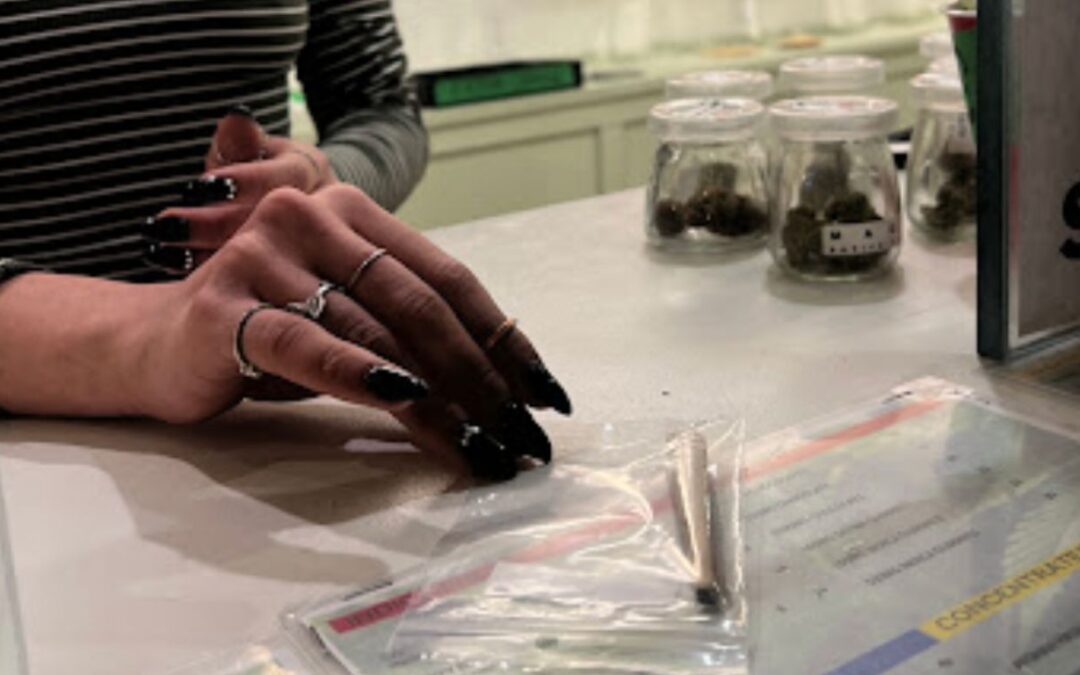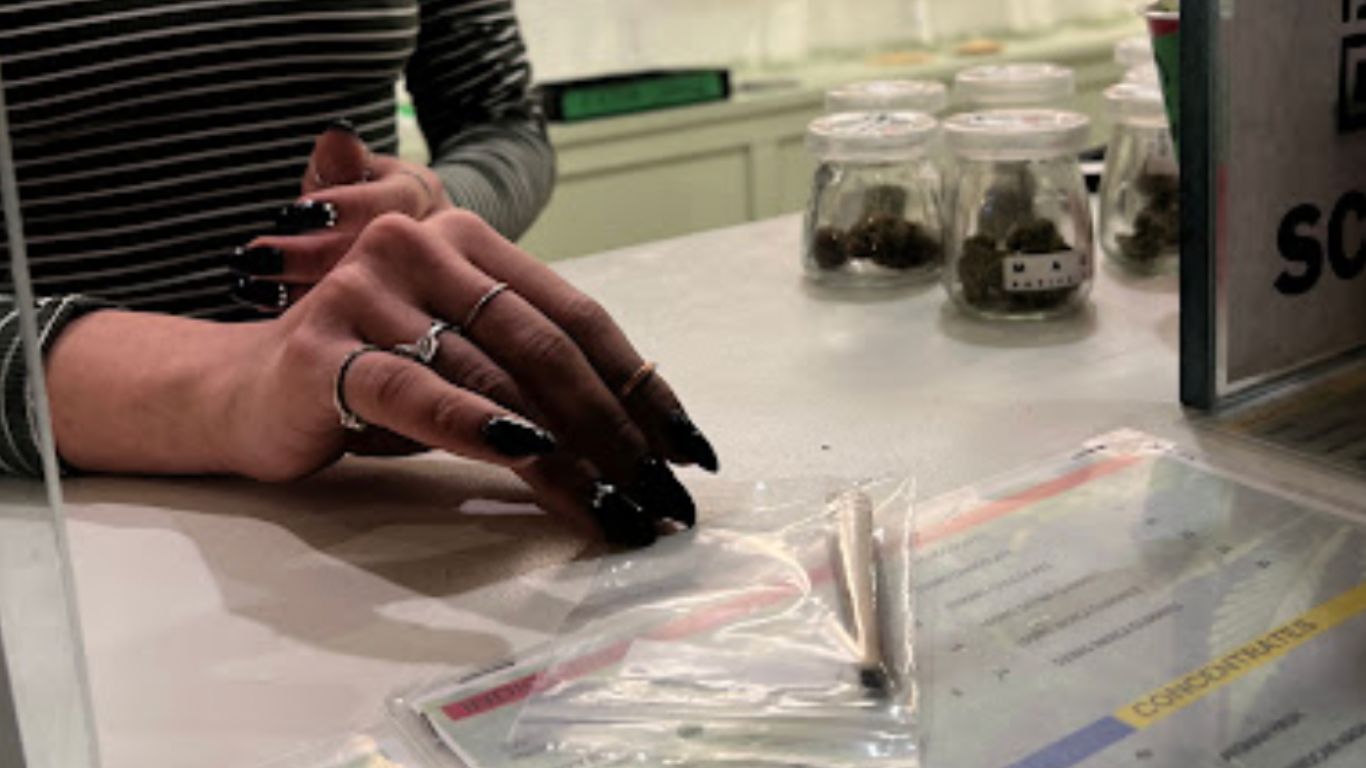
by Grow Up Conference | Nov 19, 2024 | Garden Culture Magazine, Media Partners
It’s almost impossible to imagine that the plants I choose today for my garden could be alive 100 years from now. Well, it’s true; a sustainable, low-maintenance perennial garden that can thrive for a century only requires making the right choices in what you choose to plant now!
Slow Growth Rate
Short-lived perennials grow in the garden between three to ten years. Long-lived perennials, however, outlive their friends by 10 to 40 years or longer – some thriving for a century or more!
These plants take a while to get going. There is very little growth above ground in their first year of planting. But below the surface, they’re busy developing roots. In their second season, they work on foliage. By the time the third growing season rolls around, all the waiting and patience pays off, and they are putting on a show that will continue for decades.
Perennial Benefits
Since these perennials live in the same spot for decades, their root systems anchor the soil, reducing erosion and improving overall moisture retention. These stalwarts will enhance your garden for decades, reducing the money you spend each year on other plants and the maintenance you need to do to keep the garden colorful and bright.
Caring for Old Perennials
As organic matter, such as leaves and spent flowers, accumulate in the soil around the plants, an ongoing food source for the microbial life below the soil surface is created, enhancing the plant’s health. Fertilizing a mature perennial, even with organic fertilizer, may upset the balance it has found in the soil by itself. Mulching the soil with leaves in the winter and organic compost is the best thing you can do for the plant. Keeping it shaped and pruned according to the plant’s needs is all they need. How easy is that?
My Five Favs Perennials to Plant
Peonies
Better Homes and Gardens reports that peonies planted in their test garden in the 1950s are still blooming in the 21st century. Growing to 3 feet tall, peonies are hardy to zone 3 and love full sun to part shade.


Hostas
Reaching maturity between five and eight years, they can live for 30 or more years in the ground or containers and are perfect for the shade garden.


Clematis
It is no secret that I love clematis. The fact that they can live for up to 50 years only increases the love affair. Preferring shaded cool roots – many clematis are hardy to zone 3 and can grow up to 10 feet tall.


Wisteria
Speaking of vines, there is something romantic and everlasting about the purple flowers and knotting wood of a wisteria vine. Full-sun Chinese wisteria (Wisteria sinensis) will live up to a century.


Hydrangea
They live up to two to five decades and add long-lasting summer color to the garden. Many hydrangeas are hardy to Zone 5 or lower and thrive in full sun to part shade.


Other popular choices for longevity in the garden include daylilies or irises. One California poppy in my garden started a chain reaction that, for over a decade, has kept producing generations of offspring, adding to the garden’s overall longevity.

by Grow Up Conference | Nov 19, 2024 | Grow Opportunity, Media Partners
(Globe Newswire) Toronto – Cannabis Xpress, a licensed operator of 14 cannabis retail stores in Ontario, will pay a penalty of $100,000 for pursuing and accepting prohibited payments from licensed cannabis producers (LPs).
Ontario’s cannabis rules bar cannabis retailers from demanding payments from LPs as a condition of securing product orders or giving preferential treatment to products in their stores. The rules exist to protect consumers and ensure a level playing field in the legal cannabis industry.
The regulatory breaches were discovered following a comprehensive compliance assessment by the Alcohol and Gaming Commission of Ontario (AGCO), which included an exhaustive review of over 82,000 documents.
The review concluded that:
- Between January 2021 and July 2023, Cannabis Xpress entered into agreements or arrangements with at least 61 LPs, the majority of which were referred to as “Data Sharing Agreements” or “Data Agreements”.
- While the agreements were ostensibly related to the sale of data, the fees to be paid under some of the agreements were, in fact, based on the number of Stock Keeping Units (SKUs) to be carried at Cannabis Xpress stores.
- Cannabis Xpress’ representations to LPs implied that, by entering so-called data agreements, they could expect to enhance sales volumes due to limited resulting competition by other LPs’ product lines in its 14 Ontario retail stores. Cannabis Xpress represented to LPs that: “our goal is to have long-term relationships with a limited number of suppliers, and pump as much volume as we can out of the stores.”
- Certain LPs were told that Cannabis Xpress was not willing to purchase their cannabis products without entering into a data agreement. Other LPs that sought to renegotiate, terminate or alter the terms of data agreements saw the purchase of their cannabis products decline in volume and frequency.
- Cannabis Xpress retail staff were informed that, before they stocked new products, they were to confirm whether the LP had a data agreement in place.
- Cannabis Xpress retail staff were also informed to not “mention deals of any sort to customers or brand reps we don’t have a deal with” and “[i]f someone asks why we don’t stock a certain brand, just politely say we have the maximum amount of SKUs we’re able to get at the moment, or something along those lines.”
Following the review, the AGCO issued an Order of Monetary Penalty to Cannabis Xpress, which they subsequently appealed.
Cannabis Xpress has withdrawn its appeal, acknowledging that certain of the data agreements effectively induced the company to purchase the relevant LPs’ products. Further, Cannabis Xpress has confirmed that it does not contest accepting payments contrary to the anti-inducement provisions of the Registrar’s Standards for Cannabis Retail Stores.
QUOTE
“Ontario’s anti-inducement rules exist to protect small businesses and consumers from predatory ‘pay to play’ schemes. The AGCO will continue to monitor business arrangements between licensed retailers and producers and will take strong action against any licensee found to be engaging in illegal behaviour.”
Dr. Karin Schnarr
Registrar and Chief Executive Officer, AGCO

by Grow Up Conference | Nov 19, 2024 | Grow Opportunity, Media Partners
(Globe Newswire) Delta, B.C. – Pure Sunfarms Corp., a wholly owned subsidiary of Village Farms International, Inc. and a leading global cannabis operation with top-performing brands, announces the launch of the Super Toast All-In-One Vape, combining grab n’ go functionality with classic fountain-inspired flavours.
Designed with convenience in mind, the sleek yellow vape features a fully custom, ergonomic design that fits comfortably in the palm. Each vape is ready-to-go with a built-in USB-C rechargeable battery and auto-draw functionality. The product is packaged in a new toast-shaped pouch in the brand’s signature yellow.
“The launch of the All-In-One Vape is a natural evolution of the Super Toast product line… a response to growing consumer demand for convenience and simple, delicious flavours,” said Orville Bovenschen, President of Pure Sunfarms. “We’ve created a product that delivers classic fountain favourites people know and love, all in an innovative and functional design.”
Pure Sunfarms emerged as the #2 licensed producer in the milled category within one year of launching Super Toast, capturing 20% market share and becoming the 3rd fastest-growing flower brand nationally. Vapes have secured their position as the #3 largest cannabis category in Canada, contributing close to 20% of total national cannabis sales. A significant driver within this category is the all-in-one vapes, which make up nearly 20% of total vape sales and are experiencing substantial growth across the country, marked by triple-digit increases.1
The new vapes will be coming to market in a variety of classic fountain flavours, including Fizzy Classic (Indica), Peach Drink (Sativa), Orange Drink (Sativa), and Fizzy Grape (Indica). With a THC potency of 87-93%, consumers can enjoy a flavourful experience in an easy-to-use design.
The Super Toast All-In-One Vape is available online and at select retailers across Ontario to begin, with British Columbia and Alberta to follow in the weeks ahead.

by Grow Up Conference | Nov 19, 2024 | Cannabis News Wire, Media Partners
A few months ago, the Department of Cannabis Control in the state of California issued 5 cannabis product recalls. The recalls drew attention to the presence of aspergillus, which brought the total number of recalls to twenty-one for the year.
The significant increase in recalls related to mold, in particular aspergillus, has made marijuana cultivators across the state to become more vigilant.
So, what do we know about aspergillus?
This mold can be found in decaying vegetation, soil and the air. It thrives in humid and warm environments, with its spores possessing the ability to travel long distances. This makes it hard to contain the mold in outdoor or even indoor cultivation operations.
While most strains of aspergillus are harmless, specific species can cause serious respiratory issues for individuals with underlying lung conditions, asthma, or weak immune systems. Other species can also cause infections, ranging from invasive aspergillosis to mild allergies.
Given that medical marijuana is used by patients with compromised immune systems, it is even more important to ensure that the products consumers have access to are mold-free.
What happens when a product fails a laboratory test?
States often carry out compulsory lab tests on marijuana products sold in their jurisdictions. Products that don’t pass these tests due to high mold levels are often turned into extracts or remediated, which decreases a cultivator’s profit margins.
For instance, the Metrc’s marijuana track-and-trace system in Florida usually flags remediated flower and labels it with an R. This negatively impacts the product’s market appeal and causes a decline in the average price of the product over time.
This approach isn’t sustainable for cannabis cultivators who’re trying to maintain profitability and a competitive edge.
How can marijuana decontamination help prevent this from happening?
Introducing a decontamination step in one’s cultivation process can substantially decrease the presence of mold before cannabis products are submitted for lab tests. The primary objective of this step is to reduce the levels of microbials present in the cannabis flower, normally through a sterilization or sanitization process.
By integrating this safeguard into one’s procedures, growers can avoid the reputational and financial damage associated with product recalls and failed laboratory tests.
What decontamination solutions can cultivators use?
- Ozone gas is known to decrease microbial levels on plants, including marijuana.
- X-ray radiation, which can help deactivate the DNA of harmful pathogens.
- Radio frequency treatment can also help eliminate pathogens.
One should keep in mind that these solutions don’t compromise the quality of the cannabis flower.
For companies like TerrAscend Corp. (TSX: TSND) (OTCQX: TSNDF) that have worked to build their reputation within the industry, every effort would be worthwhile if it helped to avoid harming what they have so far achieved.
About CannabisNewsWire
CannabisNewsWire (“CNW”) is a specialized communications platform with a focus on cannabis news and the cannabis sector. It is one of 70+ brands within the Dynamic Brand Portfolio @ IBN that delivers: (1) access to a vast network of wire solutions via InvestorWire to efficiently and effectively reach a myriad of target markets, demographics and diverse industries; (2) article and editorial syndication to 5,000+ outlets; (3) enhanced press release enhancement to ensure maximum impact; (4) social media distribution via IBN to millions of social media followers; and (5) a full array of tailored corporate communications solutions. With broad reach and a seasoned team of contributing journalists and writers, CNW is uniquely positioned to best serve private and public companies that want to reach a wide audience of investors, influencers, consumers, journalists and the general public. By cutting through the overload of information in today’s market, CNW brings its clients unparalleled recognition and brand awareness. CNW is where breaking news, insightful content and actionable information converge.
To receive SMS alerts from CNW, text CANNABIS to 888-902-4192 (U.S. Mobile Phones Only)
For more information, please visit https://www.CannabisNewsWire.com
Please see full terms of use and disclaimers on the CannabisNewsWire website applicable to all content provided by CNW, wherever published or re-published: https://www.CannabisNewsWire.com/Disclaimer
CannabisNewsWire
Denver, CO
www.CannabisNewsWire.com
303.498.7722 Office
Editor@CannabisNewsWire.com
CannabisNewsWire is powered by IBN

by Grow Up Conference | Nov 18, 2024 | Media Partners, The New Agora
Building a Bridge to The Overman
by Gary Z. McGee
“I want to teach men the sense of their existence, which is the Overman, the lightning out of the dark cloud man.” ~Nietzsche
What does it mean to become “the lightning out of the dark cloud man”?
It means becoming the personification of a shock and awe campaign. It means striking with white hot inquiry. It means harnessing your integrated shadow like a sword and using that sword like an existential Occam’s Razor slicing through certitude.
More importantly, it means realizing—balls to bones, ovaries to marrow—that everything is connected to everything else and that you alone are responsible for the universe becoming aware of itself.
The lightning out of the dark cloud man is a bridge to the Overman Ethos, inspired by Nietzsche’s philosophy. It involves a transformative process both personally and culturally. Here are seven steps that might guide you on this path.
1.) Confrontation with Nihilism:
“The power of the Void is the power of wombness in us all, the power of true creativity.” ~Peggy Andreas
Objective: Recognize the absence of inherent meaning or values.
Action: Deliberately explore the void where traditional values or gods no longer provide meaning. This isn’t to dwell in despair but to understand the freedom and responsibility it entails. Engage with existential literature, art, or personal meditation on life’s inherent meaninglessness.
When you embrace the void, you turn the tables on meaninglessness and create a platform whereupon you are free to create your own meaning. New meaning. Fresh meaning. Updated meaning. The void becomes a canvas where the art of your life can spill forth, a stage where the drama of your life can play out, a clean slate where your unique story can be authentically told.
Meaning, purpose, and higher values are the flowers that bloom from the mud of the void. It takes going through the underground of the soul, toiling through the muck and mire of the human condition, navigating the Underdark of your primal chaos, to discover loam rich enough to grow your unique meaning and purpose.
2.) Self-Reflection and Overcoming:
“All fixed set patterns are incapable of adaptability or pliability. The truth is outside of all fixed patterns.” ~Bruce Lee
Objective: To understand and surpass one’s current self.
Action: Engage in rigorous self-analysis. Identify limitations, fears, and outdated beliefs. Nietzsche’s concept of “self-overcoming” involves transcending these through will, discipline, and creativity. This might involve therapy, philosophy, or personal creativity projects.
Transcend the human condition through healthy nonattachment and achieve a self-actualized state of perpetual self-overcoming. Your nonattachment will keep you elevated above the battlefield of the human condition so that you can freely move in and out of notions of Self.
Self-overcoming becomes a chisel for the hardened beliefs within you. You use it to humble yourself, to destroy your illusions and murder your delusions, to unsettle your settled mind, to shock your chakras, and to recondition your cultural conditioning.
As Camus said, “The greatness of man lies in his decision to be stronger than his condition.”
3.) Creation of Personal Values:
“Continuous improvement is better than delayed perfection.” ~Mark Twain
Objective: Establish new values that affirm life and growth.
Action: Cultivate values that resonate with life-affirmation, creativity, strength, and joy. This might involve adopting new lifestyles, ethical systems, or artistic expressions that reject passive acceptance of traditional morality and embrace aggressive alignment with cosmic morality.
Question why you hold certain values. Are they yours by choice or by cultural imposition?
Realize that your true value is in your unique imagination. Everything else is moonshine. Your imagination is your potential. It’s your deepest longing to express your own values in the world. This uniqueness is your life’s purpose, your soul’s signature, your unmatched contribution to the human condition.
Live experimentally. Practice becoming over being. Self-interrogate. Self-actualize. Self-overcome. Keep the eight-spoked wheel of virtue (courage, moderation, wisdom, justice, curiosity, honor, humility, and humor) moving forward. Keep your values in sacred alignment with universal laws. Live in harmony with cosmic principles.
The process of revaluation is not a linear progression but a spiraling journey where each step might revisit previous ones with new insights.
4.) Embracing the Dionysian:
“These poor creatures have no idea how blighted and ghostly this so called ‘sanity’ of theirs sounds when the glowing life of a Dionysian reveler thunders past them.” ~Nietzsche
Objective: To integrate both Apollonian (order, beauty) and Dionysian (chaos, ecstasy) aspects of life.
Action: Live life with intensity, embracing both its highs and lows. Celebrate life’s passions, creativity, and even its tragedies. This might mean engaging in music, dance, or other forms of ecstatic expression, balancing order with chaos.
Practice Dionysian disobedience despite Apollonian obsequiousness. Be divergent. Practice Promethean audacity. Dance through the mannequin culture. Thunder past the status quo junkies. Live deliberately. Be a courage-enforcer, a mettle sharpener, a lion-awakener.
The key is courageously delving into the forbidden to discover hidden secrets otherwise unattainable. So as not to remain blinded by the light of outdated culture. So as not to get lost in the abyss of a thousand and one clashing dogmas. So as not to fall victim to the tyranny of reason at the expense of the vitality of imagination.
5.) Cultivating the Will to Power:
“We, half dust, half deity.” ~Lord Byron
Objective: To assert one’s creative force over life’s circumstances.
Action: Practice making decisions and taking actions that expand one’s influence over one’s life. This isn’t about power over others but power over oneself and one’s environment. It might involve leadership roles, pioneering projects, or personal development challenges.
The will to power is the will to self-mastery. It’s a health-based, body-based, earth-based philosophy. It’s going from being merely a self-forging independent force to becoming a self-overcoming force of interdependent fate.
Self-mastery is mastering mortality despite infinity. In the throes of self-mastery everything is a whetstone: pain, setbacks, tragedy, mistakes, loss. The obstacle is the path. Iron sharpens iron. Catharsis begets catharsis. Diamond cuts diamond.
Practicing the will to power is having the ability to use the hardships of life, the setbacks, the slings and arrows, the ups and downs, to make yourself stronger. It’s choosing to live life to the fullest, knowing mistakes will happen; rather than merely existing, fearful of making any mistakes.
Cultivating the will to power is about striving towards personal excellence, creativity, and resilience, not for the sake of power over others, but to master oneself and to live life with passion and purpose.
6.) Balancing the Will to Power with the Will to Humor:
“As soon as you have made a thought, laugh at it.” ~Lao Tzu
Objective: Live in such a way that your sense of humor rivals all other virtues.
Action: To allow the law of levity to supersede the law of gravity. To keep humor ahead of hubris.
The will to humor is the only thing more powerful than the will to power. With this power over power, those practicing the will to humor are compelled to turn their power outward. First as laughter, second as expiation, and third as prestige.
This presents an interesting challenge to the traditional understanding of power dynamics. While the will to power might drive creation, conquest, and personal growth, the will to humor operates in the realms of open-mindedness, resilience, flexibility, and catharsis.
Both can coexist, with humor offering a different kind of strength—one that might not dominate in the same overt ways as traditional power but perhaps influences on a deeper, more pervasive level through laughter, insight, and connection.
Ultimately, while power is about control, humor is about liberation—liberation from the seriousness of life, from oppressive structures, and from one’s own limitations.
Practice humor over hubris. Hang a question mark on all the things you’ve taken too seriously. Set a tripwire for your pride. Dangle a noose over your petty expectations. Take everything with a grain of salt and some things with the entire saltshaker. Have a laugh at the cosmic joke.
7.) Contribution to Cultural Evolution:
“Be extremely subtle even to the point of formlessness. Be extremely mysterious even to the point of soundlessness.” ~Sun Tzu
Objective: To influence the broader cultural narrative towards life-affirming values.
Action: Share your insights, creations, and life lessons through art, writing, teaching, or activism. Engage in public discourse, challenge prevailing norms, and inspire others towards their own self-overcoming. This step might involve community building or becoming a cultural figure who embodies these values.
Balance solitude and society. Nietzsche highlights the importance of solitude for self-discovery but also the necessity of returning to society to contribute and influence. Equilibrium is key. Stretch your comfort zone. Seek solitude and adventure. Discover the labyrinth and your very own Hero’s Journey. Just remember to return to the “tribe” and share your magic elixir.
Most important of all: avoid Dogma. Each step should be approached with a caution against creating new dogmas. The Overman Ethos is about continual overcoming, not static achievement.
Building this bridge requires continual engagement with oneself and the world, embracing both destruction and creation. It’s a path of becoming, not arrival, where each step challenges and expands the individual towards a fuller expression of human potential, resonating with the Overman—one who creates their own values, lives passionately, and contributes to the evolution of human culture.
Image source: Final by Stuz0r
About the Author:
Gary Z McGee, a former Navy Intelligence Specialist turned philosopher, is the author of Birthday Suit of God and The Looking Glass Man. His works are inspired by the great philosophers of the ages and his wide-awake view of the modern world.
This article (7 Steps Toward Building a Bridge to The Overman) was originally created and published by Self-inflicted Philosophy and is printed here under a Creative Commons license with attribution to Gary Z McGee and self-inflictedphilosophy.com. It may be re-posted freely with proper attribution, author bio, and this statement of copyright.

by Grow Up Conference | Nov 18, 2024 | Media Partners, The New Agora
Holy guacamole,
Apocatastasis Institute is going to Vegas!
… with your help.
I have lately been nominated, and won, an award from the EDUCATION 2.0 group for pedagogical leadership. This accolade will be given at their conference in Las Vegas, USA this March (’25). More important than receiving any plaudit, however, it is advisable I attend this event in order to network with other cutting-edge teachers and businessmen in the field of education.
With the greatest parsimony and thrift, this journey will take $3000 to complete between travel, room & board, and conference admission. Will you make it happen?
Apocatastasis Institute is your school. It was erected by the republic all those years ago, and it will serve the republic to its dying day. If you want your college to get to the next level, please consider donating, enrolling in our classes/tutorials, buying our books, book-markers, and pens, or attending our Open Events. You may consult OUR SITE for specifics on these points, or you may write us at our usual email address for guidance (n.b., including our Venmo and PayPal information).
This is an exciting opening God has put in our path. I have much to say about our opportunity, and thus I have recorded an A/V presentation HERE.
Amidst crunching leaves and silver linings,
John Coleman
P.S., Speaking of fundraising, clear out your garage and help the Institute get to Vegas HERE. JC
November Institute Feature
R. Michael Fisher has lately recorded a response to John Coleman’s essay To The Dead I Speak.
Apocatastasis: An Institute for the Humanities
“A proud product of public education, John Coleman received his undergraduate degree in history from Western Connecticut State University. Alas, that was to be the end of his flattering academic titles. Unwilling to once again become a debt slave to usurers, his graduate studies were scotched at the half-way point. John wasted over a decade of his professional life attempting to establish a high school for a community who took neither themselves nor their worldview seriously. Burned by these unseemly experiences, on Holy Saturday of 2013 Apocatastasis Institute was founded.“

by Grow Up Conference | Nov 18, 2024 | Media Partners, Stratcann
The Ontario government has introduced legislation that they say, if passed, will help tackle illegal cannabis sales by prohibiting advertising and promoting the sale of illegal cannabis through the province’s cannabis legislation.
The possible changes are part of a larger package of changes as part of new legislation, the Safer Streets, Stronger Communities Act, which includes targeted measures to help support public safety near supervised consumption sites, crack down on auto theft and careless driving, enhance the tools police can use to manage sex offenders, tackle illegal cannabis sales and support access to justice.
“Our government is keeping our communities safe and holding criminals accountable,” said Solicitor General Michael Kerzner. “Today, we’re proposing impactful changes to strengthen tools for police officers, improve access to justice and eliminate dangerous activity that puts hard-working people at risk. In Ontario, crime doesn’t pay.”
Targeting advertising with new legislation
The proposed change would amend the Cannabis Control Act, 2017 to add a new prohibition “respecting the advertisement or promotion of cannabis that is sold unlawfully, along with a related penalty if a person is convicted of contravening the prohibition.”
Current penalties for violating various aspects of Ontario’s Cannabis Control Act, 2017 can range from up to $100,000 for an individual and up to $250,000 for a corporation.
Many cannabis retailers in Ontario have expressed frustration at what they say is under-enforcement by police against unlicensed cannabis stores. This new legislation, if passed, could give bylaw officers more ability to penalize illicit operators without relying entirely on Toronto or Ontario police services.
StratCann reached out to representatives at the City of Toronto regarding a recent article about illicit stores in the province, and their response revealed a need for the province to review the Cannabis Control Act, which has not been updated since before legalization.
“In March, 2024 Toronto City Council requested the Province of Ontario undertake a comprehensive review of the Cannabis Control Act, 2017, in consultation with municipalities, including roles and responsibilities, funding, and enforcement, and addressing unlicensed cannabis establishments,” said Shane Gerard, Senior Communications Coordinator. “The Cannabis Control Act, 2017 has not undergone a comprehensive review since it was introduced seven years ago.”
Charging property owners in contravention
He added that the province is responsible for licensing and regulating private cannabis retail stores through the AGCO, which enforces the regulations. Further, Gerard said that the city does, in fact, go after property owners.
“The city can, and does, file charges against property owners who are in contravention of the Cannabis Control Act. Individuals charged can face fines of up to $250,000 and face imprisonment of two years (minus one day).”
The city also pointed out that the current Cannabis Control Act provides limited authority to municipal by-law officers.
“These officers do not have arrest powers and are not permitted or trained to use force while carrying out enforcement activities. This makes the enforcement of unlicensed cannabis dispensaries challenging and presents health and safety risks to officers.”
Bill 223, Safer Streets, Stronger Communities Act, 2024 was introduced and read for the first time on November 18, 2024.

by Grow Up Conference | Nov 18, 2024 | Cannabis News Wire, Media Partners
A recent study suggests that marijuana’s impact on sleep may differ depending on an individual’s mental health background.
The study, conducted by the University of Southern California’s Keck School of Medicine, revealed that marijuana enhanced sleep for young adults with anxiety or depression. In contrast, those without any pre-existing mental health issues experienced more frequent sleep issues when using marijuana.
The study analyzed data from the university’s Happiness and Health Survey, which tracked the health, emotional well-being, and substance use habits of 3,300 Los Angeles public high school students from 2013 to 2023.
Researchers compared sleep issues in individuals who used marijuana frequently (at least 20 times every month) with those who had never used it. Marijuana use corresponded to an average 1.18-point reduction in sleep problems for those experiencing anxiety or depression. In contrast, participants without anxiety or depression saw their sleep problems increase by an average of 1.66 points when using cannabis compared to non-users.
While the authors said they were unsure why marijuana affects individuals with depression or anxiety differently, they speculated that it’s because THC could temporarily suppress symptoms of depression or anxiety, which symptoms can negatively impact sleep. However, they cautioned that using marijuana this way doesn’t necessarily address the root of these mental health conditions.
Peter Grinspoon, a Harvard Medical School lecturer and physician, offered additional insight noting that marijuana affects the endocannabinoid system, which plays a role in sleep regulation. While scientists have yet to fully understand how marijuana interacts with this system to influence sleep, Grinspoon pointed out that people with pre-existing mental health issues like depression and anxiety may benefit more from marijuana for sleep because they often suffer from insomnia.
The study did not, however, examine marijuana dose or consumption method, which Grinspoon believes are crucial factors. He explained that individuals aiming to use marijuana as a sleep aid often opt for lower doses, as higher doses can be stimulating rather than sedating. He also suggested that some of the existing research may be skewed, as much of it was conducted with a focus on potential harms rather than benefits due to historical biases in marijuana research.
Using cannabis for sleep is not without risks. Like most sleep aids, marijuana can lead to dependence, and individuals may experience withdrawal symptoms when they stop its use. Additionally, researchers warn that marijuana use might reduce time spent in rapid eye movement (REM) sleep, leading to fewer dreams.
As more studies are conducted on which particular people are more likely to benefit from medical marijuana for different symptoms, enterprises like Cronos Group Inc. (NASDAQ: CRON) (TSX: CRON) are likely to tweak their products in order to address the specific needs of their customers.
About CNW420
CNW420 spotlights the latest developments in the rapidly evolving cannabis industry through the release of an article each business day at 4:20 p.m. Eastern – a tribute to the time synonymous with cannabis culture. The concise, informative content serves as a gateway for investors interested in the legalized cannabis sector and provides updates on how regulatory developments may impact financial markets. If marijuana and the burgeoning industry surrounding it are on your radar, CNW420 is for you! Check back daily to stay up-to-date on the latest milestones in the fast -changing world of cannabis.
To receive SMS alerts from CNW, text CANNABIS to 888-902-4192 (U.S. Mobile Phones Only)
For more information, please visit https://www.CannabisNewsWire.com
Please see full terms of use and disclaimers on the CannabisNewsWire website applicable to all content provided by CNW, wherever published or re-published: https://www.CannabisNewsWire.com/Disclaimer
CannabisNewsWire
Denver, CO
www.CannabisNewsWire.com
303.498.7722 Office
Editor@CannabisNewsWire.com
CannabisNewsWire is powered by IBN

by Grow Up Conference | Nov 18, 2024 | Extraction Magazine, Media Partners
Historically, many companies have failed to innovate when new technology becomes available, squandering their success. Even household names have fallen victim to this phenomenon.
Unfortunately, brands in the cannabis industry can face the same burden. Recent data has shown that new technologies in automation and AI are driving the industry forward, and companies that don’t embrace this movement are setting themselves up for failure.
Even though technologies are advancing the cannabis industry, many growers are using subpar processes and equipment. This could be because of misplaced beliefs surrounding AI and automation or an unwillingness to invest.
Regardless of what is holding back cannabis growers, this article aims to enlighten cultivators about the AI and automation equipment that can advance operations.
An Overview Of Automation In Cannabis Extraction
Automation is transforming the cannabis industry, especially extraction processes. Automated cannabis extraction systems improve the extraction process by using technologies like rectification columns, chromatographs, and precision valves.
This automated equipment makes cannabis extraction far more precise and reliable while ensuring high-caliber quality control. It also enables faster extracting times, increased consistency, and more efficient production.
Moreover, automated systems in cannabis extractions allow growers to cater crops to specific strains and help them handle larger batches with fewer errors, labor costs, and safety hazards.
How Can AI Be Used In The Cannabis Extraction Industry?
With AI advancing numerous industries, it’s no wonder that more and more growers are turning toward its expertise. However, how can AI be used in the cannabis extraction industry? Based on research and thought analysis on the topic, growers are using AI to enhance product quality, optimize growth, and streamline operations.
AI can process plant health and environmental data to ensure a crop experiences the best possible growing conditions, reducing resource waste and maximizing yields. In addition, AI’s predictive analytics also help cultivators identify issues such as pest infestations and diseases before a crop can be affected. This allows growers to implement measures to counteract the potential problem before it happens.
Yet, AI is not only assisting cultivators in the cannabis industry; it is also positively impacting retail dispensaries. Retail dispensaries use AI tools to analyze customer data and personalize marketing techniques and product recommendations, helping the shopper experience.
In addition, AI technology is also reducing the likelihood of errors and penalties, simplifying compliance procedures, and automating the reporting and tracking needed by regulations.
Why Is Automation In Extraction Necessary for the Cannabis Industry?
To some, automation isn’t a necessity in the cannabis industry. While this might be true for small cultivators, it is not for larger-scale cannabis production companies. Before automation, growers couldn’t achieve commercial success without countless workers continuously on the clock.
Nowadays, because of automation in extraction equipment, every part of the growing process is more streamlined and efficient. With automation, less manpower is needed, crop quality and quantity are improved, yields are more reliable and resilient, and cannabis growing is more eco-friendly.
What Equipment Is Automated In Cannabis Extraction?
Gone are the days when cannabis equipment was operated by hand. Smaller growers might not use automated or AI-integrated technology, but many commercial cultivators do. Some of the most commonly automated equipment in the cannabis industry includes:
- Centrifuges: These devices are used to separate and clarify extracts.
- Rotary evaporators: In the cannabis industry, rotary evaporators remove solvents and concentrate botanicals.
- Vacuum ovens: Many growers automate their vacuum ovens to dry their crops effectively while ensuring reliable removal.
- Pipettes: Pipettes are an automated liquid handling system that helps cultivators ensure accurate mixing and dosing.
- Distillation columns: Temperature control is vital for cannabis extraction, and automated distillation columns help with precise temperature control and extraction.
These are only a few examples of the equipment used in the cannabis industry. Far more equipment is involved in the extraction processes undertaken by companies producing cannabis products, but the above should give you an idea of what equipment is used.
What Can Be Automated In Cannabis Cultivation? – Extraction Equipment Processes
Intelligent technologies like AI and automation are not only for simple tasks like switching lighting at predetermined intervals or getting an irrigation system to water cannabis plants.
These technologies are complex and involve discovery, data collection, analysis, and action.
When done correctly, AI and automation can lead to massive returns in the cannabis industry, so more people are turning toward extraction equipment and processes that integrate AI and automation.
Closed-loop Hydrocarbon Extraction
Many growers use this specialized technique. It uses an extractor vessel sealed to the outside atmosphere. This vessel can be automated to ensure the safe use of solvents like , , and , which is vital if you want to keep a lab safe.
Solvent Recovery
After cannabis is extracted, solvents like CO2 and remain in the cannabis oil, which needs to be separated. Automated systems use vacuum pressure and heat to recover and recycle solvents.
Supercritical CO2 extraction
This unique method uses highly pressurized carbon dioxide to extract terpenes and . In the cannabis industry, CO2 extractors are being wholly automated to better manage precise pressures, temperatures, and flow rates, reducing human error and optimizing yield to ensure efficient and concise extraction.
Winterization
When fats and lipids are removed from extracted cannabis, this process is known as . Automated systems handle this process by controlling the filtration and freezing to speed up production and ensure growers are left with a more refined product.
Post-processing
After cannabis has been extracted, there are times when it needs to undergo further refinement. This is particularly true for cannabis oil. When cannabis oil needs to undergo post-processing, it will undergo distillation or .
These post-processing procedures are conducted by automated systems that apply the correct amount of heat to activate cannabinoids. At the same time, the automated system is also tasked with separating cannabinoids from impurities.
Does Automation and AI In Extraction Improve Safety?
Automation and AI in the cannabis extraction industry also keep human workers safe. With these systems in place conducting the above processes, humans are kept away from dangerous working zones. In addition, the benefits of automation in extraction extend far beyond safety.
Extraction systems can reduce human error by removing the need for mechanical valves. Moreover, these incredibly advanced extraction processes and equipment cut costs and increase throughput by lowering the time it takes to load and unload extraction vessels.
Sustainable Extraction Processes Achieved With Automation and AI
In the cannabis extraction industry, sustainability is becoming a priority. More and more companies are trying to minimize their environmental impact, which is challenging considering the many costs involved in extraction.
However, just because it is difficult does not mean it is impossible. With sustainability a priority, companies are striving to be the change the industry needs by driving the development of new sustainable extraction methods and equipment.
Some of these eco-friendly practices and types of equipment include:
- Microwave-assisted extraction: Although it might not sound real, microwave-assisted extraction is a newer technology that lowers the industry’s carbon footprint by consuming less energy during cannabis extraction.
- Supercritical and ultrasonic fluid extraction: Ultrasonic and supercritical fluid extraction are emerging methods that reduce solvent usage. These methods require significantly less solvent than traditional techniques, meaning less waste and curbing harmful pollution.
- Non-toxic solvent: Biodegradable, non-toxic solvents like CO2 are being adopted at an increasing rate since they support cleaner extraction processes and result in safer end products.
What Are The Challenges Of AI and Automation in Cannabis Extraction?
Although automation and AI in cannabis extraction equipment are integral players in the industry’s continued growth, there are challenges. For example, the initial investment in AI and automation is steep. Many companies don’t have the capital to invest hundreds of thousands of dollars in AI and automated equipment. In addition, automated machines require consistent maintenance, monitoring, and calibration. This in itself can be costly and time-consuming which can affect extraction processes.
Companies wanting to automate or implement AI technology into their cannabis extraction processes and equipment usage must carefully consider these challenges and if it is worth the risk.
The Wrap-Up On Automation and AI In Cannabis Extraction Equipment
It’s evident that the advancements in AI and automation in equipment and cannabis extraction processes are significant. Automation and AI also carry several benefits that companies want. However, these intelligent technologies also come with their challenges.
Yet, as is the case with most things, these challenges can be overcome. Should companies choose to incorporate automated equipment and AI into their cannabis extraction departments, they can continue to meet the demands of the rapidly growing industry and ensure long-term sustainability and success.
References:
- https://greenvaultsystems.com/guide-to-automation-in-cannabis-cultivation/
- https://solink.com/resources/industry-insights/ai-in-the-cannabis-industry/
- https://cannabisindustryjournal.com/feature_article/rise-of-the-machines-the-case-for-automation-in-the-cannabis-industry/
- https://www.azorobotics.com/Article.aspx?ArticleID=613
- https://www.cannabisbusinesstimes.com/business-issues-benchmarks/automation/article/15687280/the-future-of-ai-in-cannabis
- https://www.cannabissciencetech.com/view/automation-and-all-in-one-systems
- https://roboticsandautomationnews.com/2023/04/27/exploring-the-latest-trends-in-botanical-extraction-equipment/67742/=
- https://preroll-er.com/data-confirms-automation-is-transforming-the-cannabis-industry/

by Grow Up Conference | Nov 18, 2024 | Grow Opportunity, Media Partners
(Globe Newswire) Toronto – Avicanna Inc., a commercial stage, international biopharmaceutical company focused on the commercialization of evidence-based, cannabinoid-based products, is pleased to announce results Q3 2024.
“We are pleased to report the results of another quarter showing progressive improvements across our four business pillars. Our continuous optimization efforts contributed to improvements in our overall financial performance, consolidated gross margins, and balance sheet. We are now better positioned to turn our attention towards our international growth initiatives and take further steps towards advancing our long-term business model.” stated Aras Azadian, CEO at Avicanna Inc.
Financial highlights:
- Revenue of $6.3 million and $18.8 million for the three- and nine-month period ending September 30, 2024, representing a 0.34% and 75% increase over the three- and nine-month period ended September 30, 2023, respectively.
- Improved consolidated gross margin percentage to 57% during Q3 2024, from 46% for the same period in 2023.
- Growth in gross profit of $3.7 million and $9.5 million, respectively, for the three- and nine month period ended September 30, 2024, compared to $2.9 million and $4.9 million for the same periods in 2023, an increase of 25% and 91%, respectively.
- Narrowed adjusted EBITDA loss for the three- and nine-month period ended September 30, 2024, narrowed to $293,931 and $719,347, respectively, a 38% and 76% decrease from an adjusted EBITDA loss of $473,650 and $3 million, respectively, in the corresponding periods last year.
- Fully repaid outstanding principle balance of approximately $1,300,000 owed under non-convertible debenture.
Other highlights:
- The United States Patent and Trademark Office granted the Company a Patent, Patent No. US 20230025693A1, covering deep penetrating topical cannabinoid composition and methods for treating musculoskeletal inflammation and pain.
- The Company completed Q3 2024 with 35 commercial SKUs and 136 commercial listings. The Company sold approximately 45,126 and 144,756 units, for the three- and nine-month period ended September 30, 2024, respectively, compared to 31,887 and 118,265 compared to the same periods in 2023. This represents an increase of 42% and 22% growth in total finished goods sold, respectively.





















Recent Comments